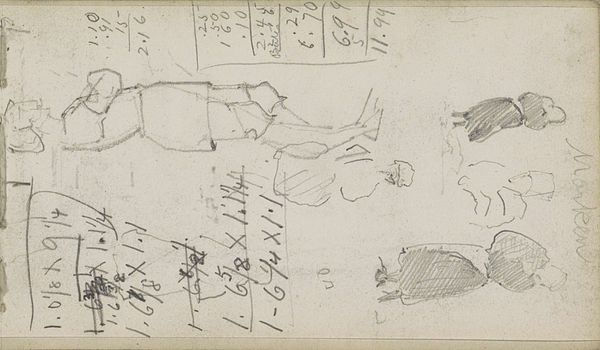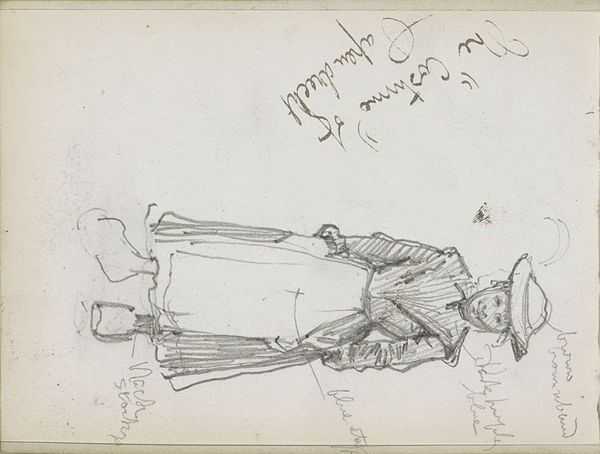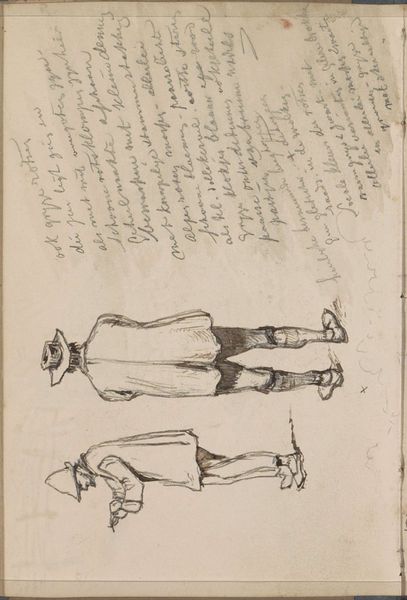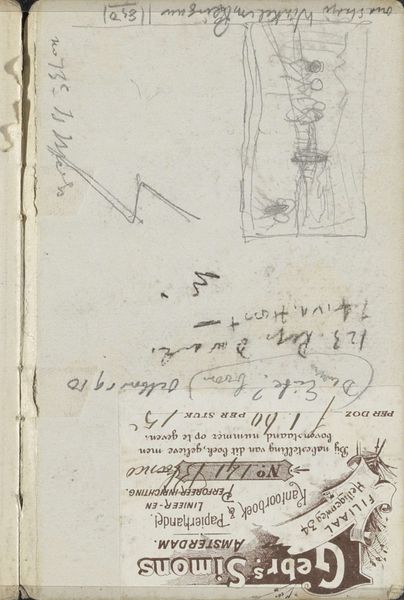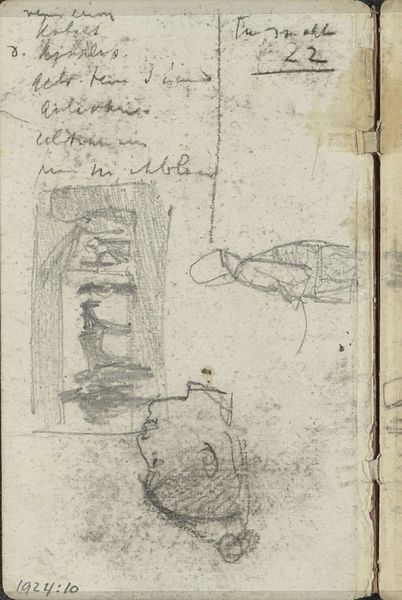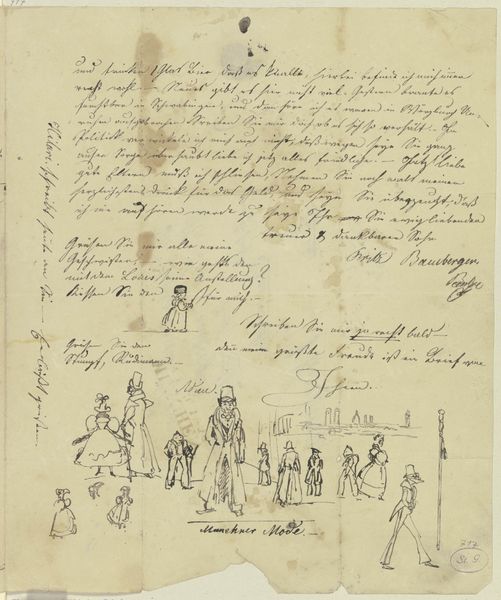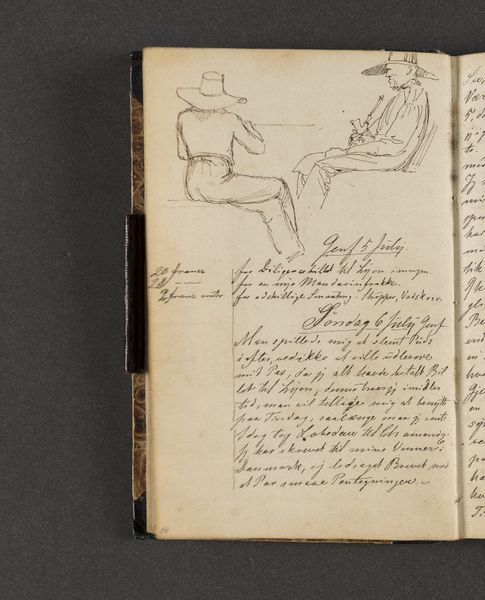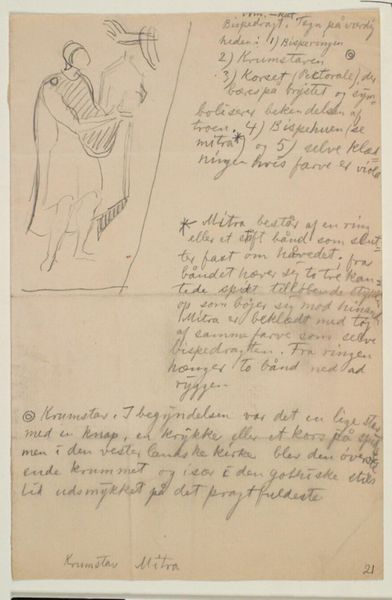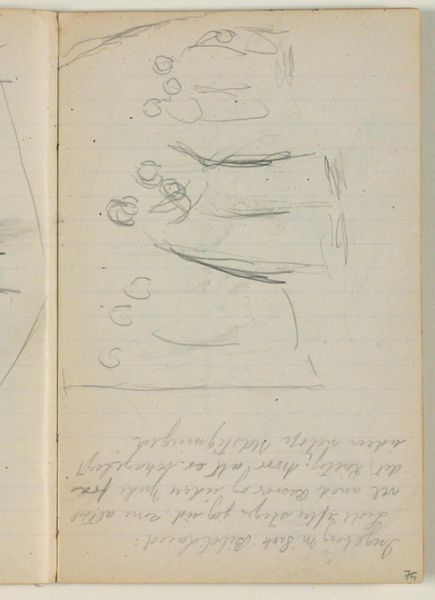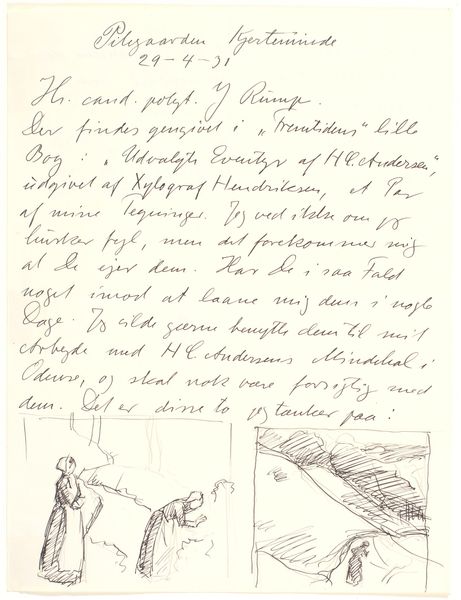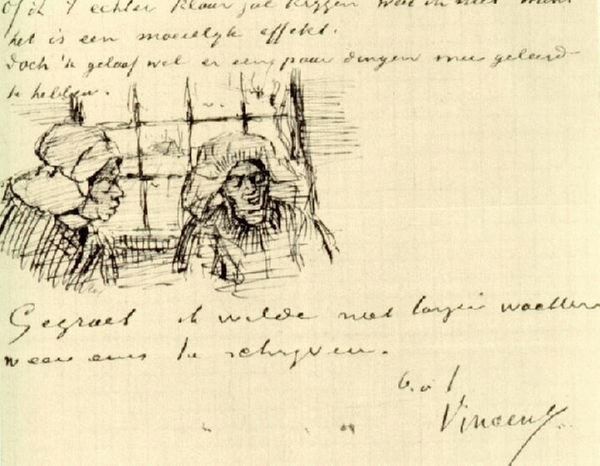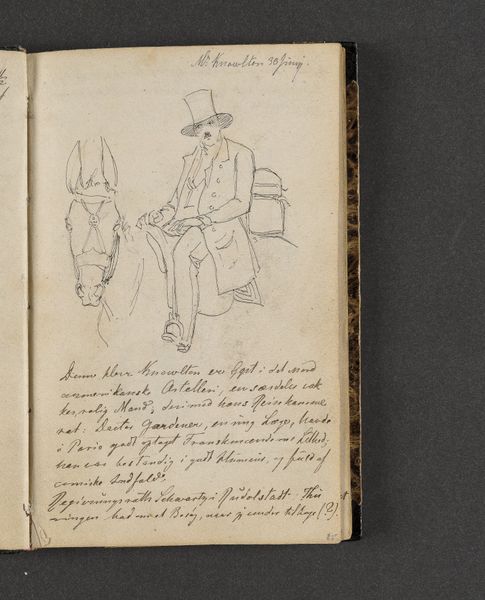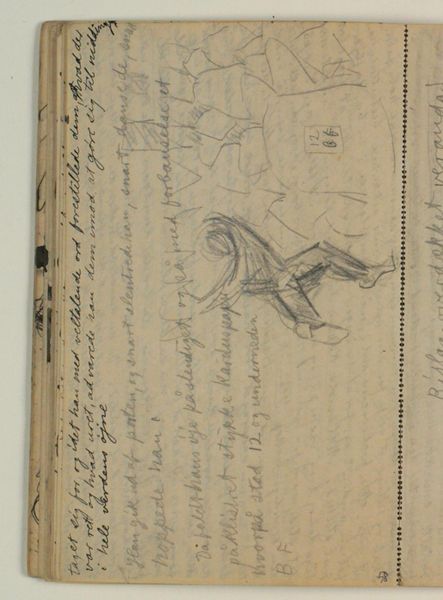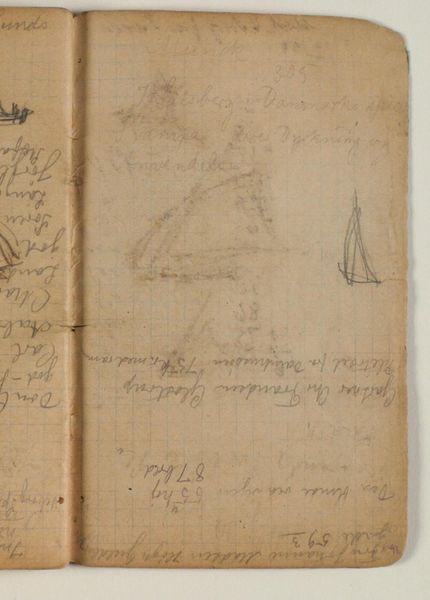
drawing, paper, ink
#
drawing
#
narrative-art
#
caricature
#
paper
#
ink
#
pen work
Copyright: Public domain
Curator: So, here we have "Letter to Jens," a drawing by Theodor Severin Kittelsen. It’s fascinating to see how Kittelsen intertwines the personal with the pictorial here. What strikes you initially about this piece? Editor: Well, I'm drawn to the caricature-like figures and the overall chaotic feel. It’s clearly a letter, but the addition of the drawings gives it this satirical edge. What's your take on it? Curator: I see this as a commentary on the art world itself. Kittelsen, often frustrated by the institutional constraints and societal expectations placed upon artists, likely used this letter as a vehicle to express those feelings. The exaggerated figures and absurd imagery could be read as a critique of the artistic establishment. Editor: So, you're saying it's less a personal letter and more a social critique disguised as personal correspondence? Curator: Precisely. Look at the overflowing pot near the bottom. It symbolizes his feeling that everything runs out eventually and he wants the recipient of this letter to take off before this happens. This could represent the artist's anxieties about recognition, artistic freedom, and the commercial pressures that existed then, and still exist, in the art world. How does that affect your view of it? Editor: It completely reframes it! I initially saw a whimsical doodle, but knowing the socio-political context, I recognize a powerful, even cynical, statement about the challenges faced by artists of his time. Curator: Exactly! It’s a potent reminder that art is always produced within a specific cultural and historical framework, one that shapes both its creation and reception. Editor: This has shown me the importance of looking beyond the image to understand an artwork’s broader social implications. Thanks! Curator: My pleasure! It’s crucial to remember that art often serves as a mirror reflecting society back at itself, and that historical awareness enriches our understanding of its enduring power.
Comments
No comments
Be the first to comment and join the conversation on the ultimate creative platform.
